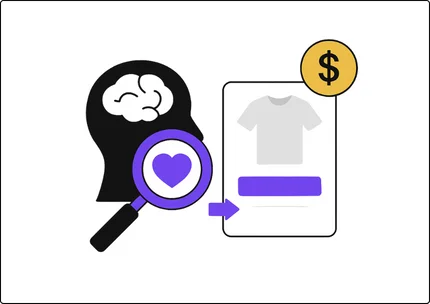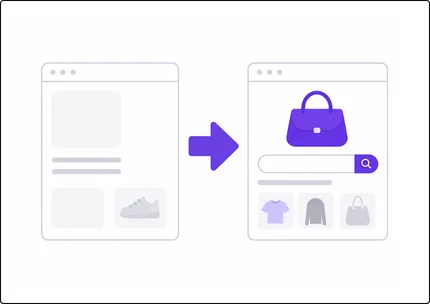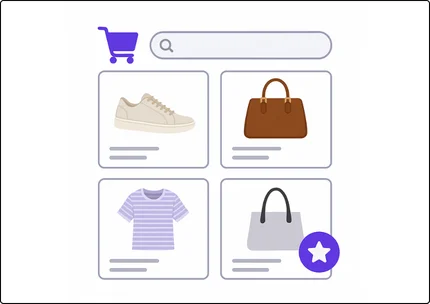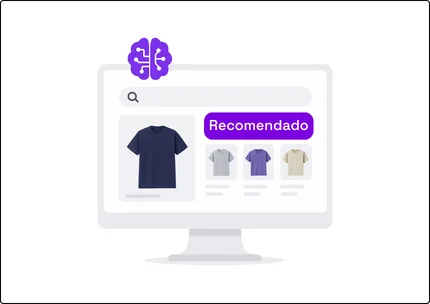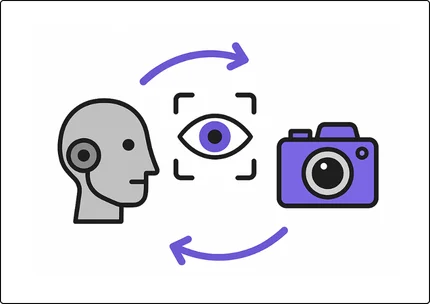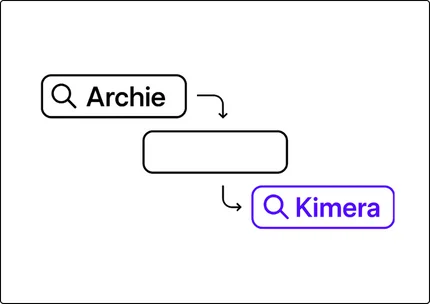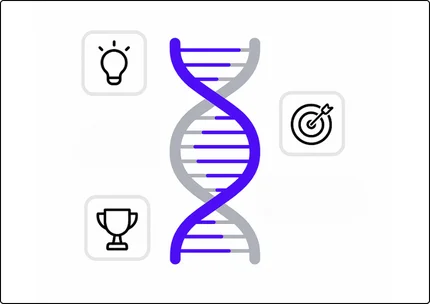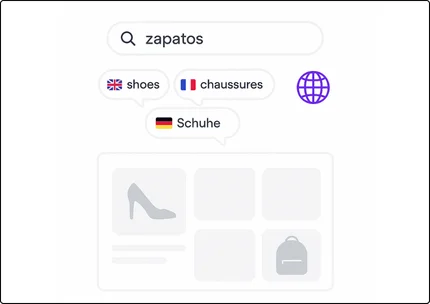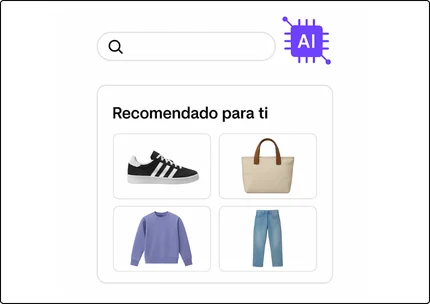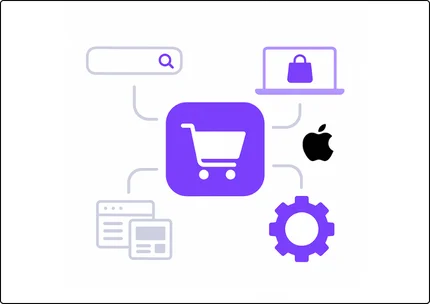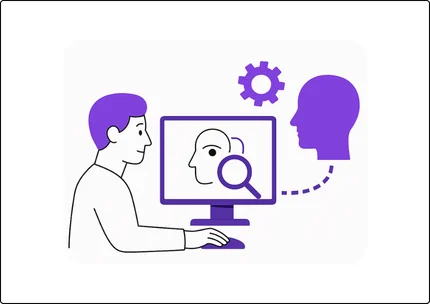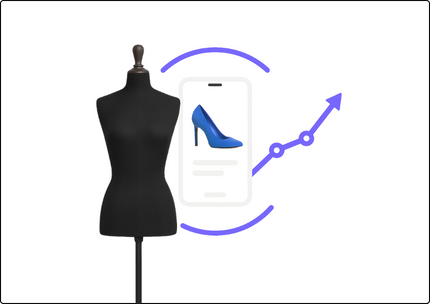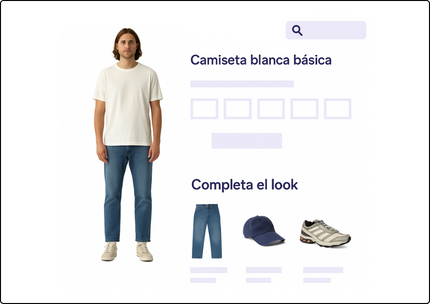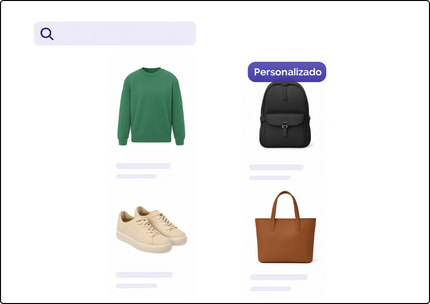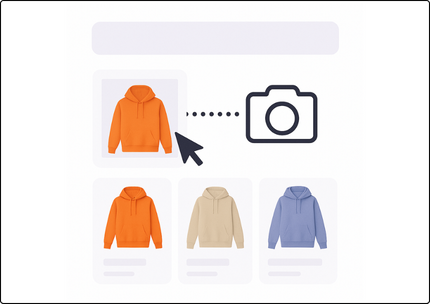We are all aware that, in one way or another, Artificial Intelligence (AI) is very present in our lives but, for the most part, we think that it is only implicit in the technology we use on a daily basis. Without allowing us to open new windows to other changes, where it plays a much more relevant role, such as in the case of companies.
Artificial Intelligence is part of the business world, it goes beyond the technology sector, and has great advantages for companies and organizations that know how to apply it to improve their processes and reduce waste in terms of both product and resources.
What is Artificial Intelligence?
In simple terms, Artificial Intelligence (AI) is a term that refers to systems or machines that imitate human intelligence in the performance of certain tasks. The main advantage is that while imitating human behavior, they are able to process and store all the information to collate it, draw out patterns and be able to improve processes constantly.
The application of this system of continuous improvement is one of the main advantages of the incorporation of AI into the business world, but this can be broken down into much more specific actions, regardless of the industry or sector in which a company operates.
In this article, we look at 8 reasons why brands should open their sights and incorporate Artificial Intelligence into the way they run their businesses.
Reasons to incorporate AI into businesses
1) Image recognition
As you might expect, computers are not able to recognise objects in images per se – in Computer Vision, you only see an amalgam of code.
In the same way that humans learn to recognise the difference between a pencil and a pen in childhood (i.e. someone gave us an explanation and arguments to see their differences), the same logic applies to technology.
By recognising patterns and colors, Artificial Intelligence understands the difference between a lace-up shoe and a boot, allowing it to identify what is in each image and be able to categorize it at breakneck speed.
2) Product personalisation
Widely used by major clothing and footwear brands, the application of AI allows virtual simulators to be created so that a user is able to configure a product to their liking.
To do this, a system of vectorised layers is established that will improve the user experience, allowing them to configure the shoe of their dreams, as happens in shops such as Nike or Converse; and even more complex products, such as designing an entire room, as offered by companies like Ikea.
3) Personalized searches
As we all know, the way search engines display results has changed significantly in recent years. Previously, results were displayed according to standards and now they try to adapt to the person who undertakes the search. The technology that has enabled this optimization according to the user’s tastes and tendencies is Deep Learning, one of the many branches of Artificial Intelligence.
4) Content moderation
Related to the previous point, which helps us to identify what type of content each user prefers to consume, in the case of content curation it goes a little further.
In this case, Artificial Intelligence allows us to eliminate what should not be shown to one, several or all users. For example, some image consumption platforms such as Pinterest or Google itself apply it in the case of images that violate the rights or freedoms of others.
5) Identification of images in videos
Videos, in order to achieve movement, are made up of an infinite number of images one after the other. Therefore, within image processing and thanks to the great speed with which AI is capable of processing information, it allows us to recognise details within the frames that make up a video.
The identification of people, objects, scenarios, etc., allows us to generate galleries or classify large banks of audiovisual content. It is much easier to identify videos with similar characteristics, for example for the composition of an audiovisual piece for a television news programme.
6) Voice recognition
It’s not all about images.
Artificial Intelligence can also be applied to voice recognition. Many of us have thought that our mobile device listens to us, but this is not far from the truth. Voice User Interface (VUI) platforms do just that, recognising the tastes and tendencies of the person interacting with the device in order to tailor their searches.
7) Audience identification and segmentation
Used especially in sectors such as sales or marketing, audience segmentation allows us to adapt messages to groups of people who share common characteristics.
In order for segmentation to allow us to know the behavior and tastes of users, it requires a learning phase in which algorithms categorize the profile of individuals, creating patterns and grouping them for different reasons. Each user can belong to an infinite number of groups, according to age, gender, location, tastes, etc.
8) Recommendation of products and services
Thanks to the knowledge gained from AI data processing, we can understand the behavior and interests of users, so we can not only show or prioritize certain content to users. We can also suggest or make recommendations on what to consume.
Platforms such as Netflix or Spotify take data from countless users to recommend to third parties about tastes that could be shared.
How to implement AI-based solutions in your company
If you are looking for tools that are able to identify what appears in each image and are able to catalog it at a dizzying pace. And all this with the aim of improving your customers’ experience, saving time and costs, having the ability to adapt content to the exact needs of your company and your prospects, and generating segmented audiences with the ability to combine products and services to offer them and what to consume.
If you want all this, the time has come to deploy Artificial Intelligence into your business. By the way, did you know that Kimera Technologies can address more than half of these advantages, generating an exclusive development adapted to the needs of your company?
